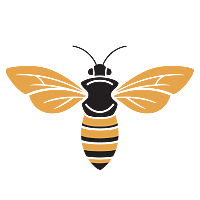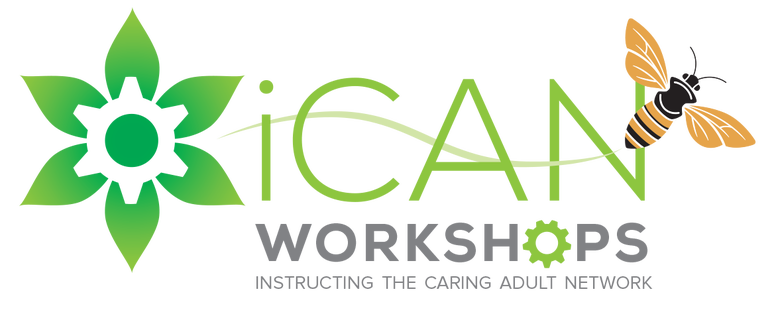The iCAN Workshop Story |
Current Workshops
Check back for new workshop dates. We are in the planning stages for spring workshops.
Who are iCAN Workshops for?
An iCAN Workshop is a learning and support environment for anyone who works with, or cares about people who are adversely impacted by trauma. We all know the hope and the joy of seeing people flourish and the pain and frustration of seeing them struggle. Connect ED has endeavored to create an environment that nurtures the hope and joy as well as encouraging strength through the pain and frustration.
What happens during an iCAN Workshop?
HEAD: Information, inspiration and invigoration for your mind
Relationships between humans are the most complex and rewarding interactions on the planet. At this point in history, our culture has produced a social ecosystem that provides some of the most significant opportunities and obstacles for healthy relationships. This is particularly true between people of different generations.
In his book Hurt 2.0, Chap Clark described what he discovered as a consistent condition over the course of hundreds of interviews and surveys of young people. The younger generation feels abandoned by those who have gone before them. As a result, they no longer trust us and have created a separate world where we are aliens. Any adult can test the boundaries of this separate world by approaching a group of teenagers in animated conversation. The presence of an adult will change the language, subject matter, posture and tone of that conversation. You’ve bumped into the cultural divide between generations.
This is a truly devastating social evolution. Kids need input from caring adults. They need access to the experience, wisdom and perspective about the world and about them. Without it, they have peers, google and Netflix to shape their identities, world views and relationships. A wholly inadequate set of tools. We are seeing the results.
The numbers of young people who have experienced trauma at the hands of those who are supposed to care for them or within their homes is higher than ever. The associated negative behaviors and outcomes like suicide, self-harm, addiction, academic failure, violence, depression and anxiety are on the increase. Institutions like marriage, religion and civic participation are declining. In families and classrooms and wherever adults and kids interact, there is frustration and anger on both sides. It is more difficult than ever to find ways to connect, encourage and lead young people.
But, hope is greater than despair.
There is understanding available, science and experience to learn from, healing to rest in and practical tools to apply. These are the elements of an iCAN Workshop. We know that caring adults are powerful protective factors for kids. It is our mission to educate those caring adults so they can connect well. Within those connections, kids will become resilient and influence the further evolution of our social ecosystem in positive ways. We can build a better future if we invest well in the younger generation.
One of the first questions we need to answer is “how did we get here?” or “How did things get this bad?” The answer is complex. Things certainly did not get this way overnight. And no one person or group of people intended for it to happen. For the most part our leaders and our cultural influences were intended for our betterment. Many things shifted that had unintended and unpredictable consequences. For example, as we changed from an agricultural to an industrial society, adolescence appeared for the first time in any significant way. When ninety percent of the population were farmers, kids started working on the farm as soon as they were big and strong enough. When they were in town with nothing to do, they started causing trouble. It wasn’t until the 1920’s that finishing twelve grades of school started becoming a social norm. The emergence of teenagers and our response to them was a massive spike on the social richter scale. The disappearance of apprenticeships and the increase in geographic mobility played a part. On the whole, America’s worship of independence has increasingly generated an individualistic rather than collective society. We are disconnected. It should come as no surprise that if we are a disconnected society, we are raising kids who are as well.
The rise of trauma and our understanding of how experience shapes the fundamental structure of our growing brains has shed new and important light on what makes people think, feel and act the way they do. It’s no longer a question of what’s wrong, it’s now a question of what happened? While the impact of trauma is devastating, it’s a nearly universal experience. It is a factor in our shared existence that we cannot avoid. Though we should not tire of the work to reduce trauma within relationships, we also need to focus on the work to build resilience in the face of trauma. We need to grow a generation of kids that can handle it when bad things happen to them. Not just handle it but respond with strength and growth. Post traumatic growth is a known capacity in our environment. It happens after forest fires, floods and famines. It’s how we build muscle and endurance and how we develop new habits. We can foster it in mental, emotional and behavioral health as well.
HEART: Encouragement, rest and energy for your soul
While psychologists have understood for more than a century that relational connection is central to human health, it is only recently that we have begun to recognize it as both prevention and treatment for what ails our kids. As adults who care about kids, we know it instinctively. We are supposed to love and protect those little monsters. But how do we do that when they bite and scratch and we are already tired?
Life is too busy, too stressful and too confusing. How can we cope with all that and be at our best as parents, teachers, volunteers or neighbors? The current trend around self care is full of interesting ideas. Many of which seem a little narcissistic. The “bath bomb” market is taking off! However, there is reliable science that provides encouragement to be internally healthy. The people we care for, especially kids, can almost literally read our minds. Things like mirror neurons and heart rate variability are capable of picking up the smallest nuances. This means if we want to care well, we need to care for ourselves first. We will spend some time in an iCAN Workshop learning about how we work as adult humans as well as how our individual characteristics affect our perspective and the responses of those we interact with.
HANDS: Experience, practice and practical tools for your shared day-to-day efforts.
In light of cultural changes that have separated us, trauma that damages us and our own exhaustion, what are we supposed to do? This is really the question we are trying to get to in an iCAN Workshop. Our learning is informed by decades of research and practice within the Positive Discipline Association. As a certified Positive Discipline instructor, I’ll lead you through exercises, rehearsals and activities that will connect what is swirling in your brain with practical tools. We will work together to build the synaptic connections that will form the framework for new, healthier instincts for your future interactions. Then we will practice, build habits and create a support network to continue that growth.
At the end of a workshop, you will be tired of thinking, satisfied that what you have always known is scientifically and practically validated and hopeful for the future of your relationships and our culture.
Thank you for taking the time to read this. You are already a Caring Adult and your investments in the lives of our kids has already made a difference!
©Curtis Miller 2018
If your school, church, nonprofit, business or other organization is curious or ready to schedule an iCAN Workshop, click the button below to contact us! We look forward to partnering with you!
Downloadable iCAN Workshop Documents - PDF
|
Workshop Description
|
Workshop Flyer
| ||||||||||||

